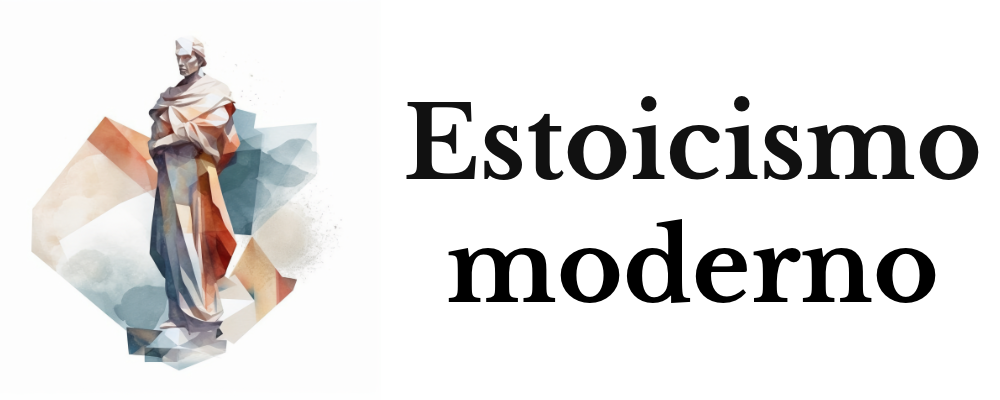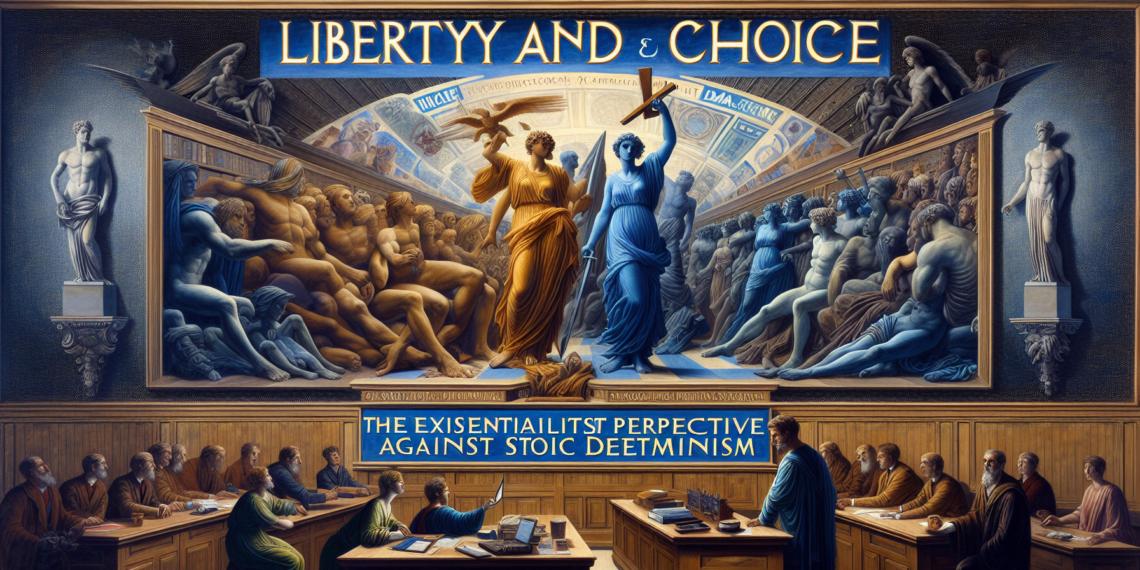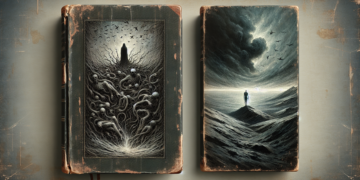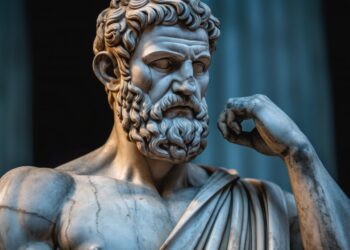Freedom and Choice: The Existentialist Perspective Against Stoic Determinism
At the intersection where the paths of Stoic thought and Existentialist reflection cross, a timeless dialogue about freedom and choice emerges. The controversy between Stoic determinism and Existentialist freedom of choice constitutes a philosophical maze where today, more than ever, we seek guidance.
The Stoic school teaches that every event is the product of a predestined causal chain, where our desires and aversions are bound with chains of natural necessity. For Seneca, “there is no favorable wind for the sailor who does not know to which port he is heading” (Epistulae Morales ad Lucilium). However, this port, according to the Stoics, is determined by the logos, the universal reason.
Today we face a world of infinite possibilities, but also of paralysis in the face of an overabundance of choices. Stoic teachings invite us to recognize that, while we cannot control external events, we can govern our internal responses. Epictetus states: “It is not things that disturb men, but their opinions about things” (Enchiridion). True freedom, they argue, is born from conformity with the logos, embracing what life sets out for us.
On the other hand, Existentialism claims that we are radically free and that the essence of human beings is defined by their actions, proclaiming, as Sartre does, that we are “condemned to be free.” In contrast to the Stoic web of fate, Existentialists place the ethereal Jamesian ether of conscious choice. The anxiety that accompanies this freedom is the manifestation of a deep understanding of the significance of our decisions in a sea of existential uncertainty.
How, then, do we reconcile these two disparate perspectives, applying their lessons to the everydayness of modern existence? The key may lie in a symbiosis of both: taking the resilience and acceptance from Stoicism and complementing it with the passion for authenticity and individual responsibility from Existentialism.
Contemporary Reflections
In our days, where immediate responses are expected and the tendency is to react rather than to respond, the Stoic practice of reflection before action offers a haven of clarity. When the digital noise overwhelms us with an excess of superficial freedom, the Stoic discipline of control over our perceptions is a beacon of concentration on what is essential.
Practical Advice and Applicable Techniques
The Imperturbability of Mind: Stoic inner peace, ataraxia, is nothing but a refuge against external turmoil. It is not about indifference, but about the strength not to be shaken by the waves of vicissitude. In practice, this translates into exercises of introspection and meditation, cultivating a mind that remains unchangeable in the storm of the external.
Conscious Choice: Existentialism, on the other hand, urges us to choose with full awareness that our choices define our being. The technique consists of scrutinizing our decisions, always asking ourselves if this act defines who we want to be.
Detailed Analysis
The clot between Stoic thought and Existentialist action occurs when we apply Nietzschean amor fati—the love of fate, a concept admired by the Stoics—to our existential choices. Accepting the immutable does not imply abdicating the responsibility to choose with determination what is within our jurisdiction.
Impactful Messages and Calls to Action
Cultivate the wisdom to discern between the cautious acceptance of predetermined events and the courage to undertake actions that resonate with our most authentic essence.
- Accept what you cannot change: Just as Marcus Aurelius invites us to accept our destiny, contemporary reflection asks us to identify what is beyond our control, and to embrace it with diligence and imperturbability.
- Choose who you want to be: Amidst this acceptance, remember that you are still the sculptor of your character. The Existentialist perspective reminds us that every thought, every action, is a stroke on the canvas of our existence.
- Govern your mind, govern your life: While we cannot always choose the ingredients of fate, the insight and art of life lie in how we mix them. As Seneca suggests, our minds can be unassailable fortresses.
Instruct your perception stoically; choose your path existentially. Your freedom lies in the pause between event and reaction. It is in that breath that character is forged and true choice is made.
With the wisdom of Epictetus and the tenacity of Sartre, shape your life not with the bricks of fate, but with the cement of conscious will. Look up to the eternity of the logos and walk firmly on the path of individual freedom. The port to which you are headed may be marked by the stars, but the helm and sails are in your hands.









